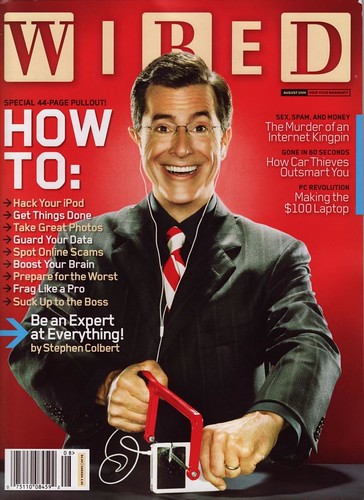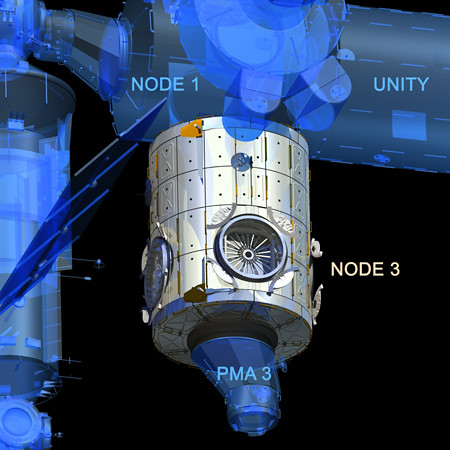
Comedy Central’s Stephen Colbert’s campaign to name the International Space Station’s Node 3 after him has worked, netting 40,000 more votes than NASA’s suggested “Serenity:”
NASA’s online contest to name a new room at the international space station went awry. Comedian Stephen Colbert won.
The name “Colbert” beat out NASA’s four suggested options in the space agency’s effort to have the public help name the addition. The new room will be launched later this year.
NASA’s mistake was allowing write-ins. Colbert urged viewers of his Comedy Central show, “The Colbert Report” to write in his name. And they complied, with 230,539 votes. That clobbered Serenity, one of the NASA choices, by more than 40,000 votes. Nearly 1.2 million votes were cast by the time the contest ended Friday.
NASA reserves the right to choose an appropriate name. Agency spokesman John Yembrick said NASA will decide in April, but will give top vote-getters “the most consideration.”

So what? Good for Colbert? Yes, definitely. But the message here is beautifully elaborated by Lawrence Walsh in Channel Insider:
While many people may dismiss such bridging of television presence and social networking as juvenile pranks, Colbert is actually trailblazing a new form of marketing. Each time he pulls off one of these stunts, he increases his visibility in the main stream press. That exposure only expands his audience and improves his celebrity status. The financial rewards come from his ability to create new products, reap endorsements and command fees for his services.
Critics might say that Colbert isn’t always successful. The Hungarian government refused to name that bridge after Colbert because “he didn’t speak Hungarian.” In 2007, Colbert famously loss a similar bid to be placed on his native South Carolina’s presidential primary ballot. And there’s no guarantee that NASA will dub Node 3 of the International Space Station after Colbert, since it reserves the right to assign an appropriate name (by the way, NASA’s top choice “Serenity” is a nod to the cult science fiction show, not some wish for universal peace). But even in failure, Colbert is increasing his exposure and expanding his market.
Believe it or not, some solution providers are following the same off-beat philosophy as Comedy Central’s funnyman. Force 3, a Maryland-based government integrator, successfully used an integrated marketing campaign around bunions (yes, the painful bumps on your feet) to capture leads for its IT products and services. Through a Web site aptly named “I hate bunions too,” Force 3 tapped into the psychie of its target market, expressing empathy for their foot pain but conceding there was little they could do to help. What they could help with is solving their more painful IT issues. The campaign worked fabulously, the company reports.
Colbert (and his people) are geniuses, but don’t for a minute think this is just about comedy. Comedy (along with sex and money) is one of the most effective marketing engagement tools. The lesson from Colbert Nation’s launch into orbit is you don’t always have to stick to the straight and narrow, dry technology marketing messages of old. Sometimes it’s OK to step out of the conventional and try something unconventional to attract new customers.
Doing it differently works.
Comments ( 2 )
I remember that awesome Wired cover/article! And I agree. His character's beloved narcissism gives him the power of a google bomb and the buzz of a worldwide nation.
Follow-up, from NASA: